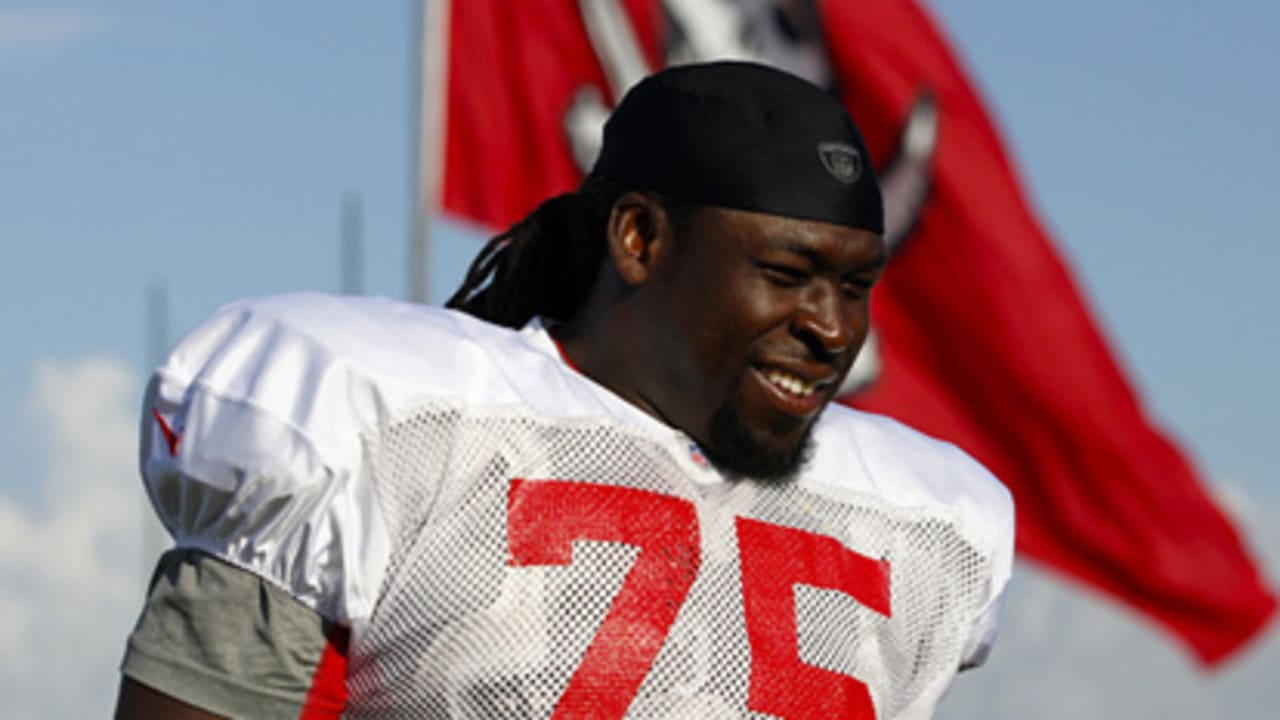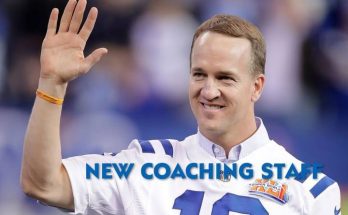Buffalo, NY — The offseason is supposed to be a time for rest, reflection, and for the NFL’s most experienced players, maybe even a well-deserved vacation. But for Von Miller, the two-time Super Bowl champion and future Hall of Famer, this year’s NFL Organized Team Activities (OTAs) have struck a nerve. While the Buffalo Bills linebacker has never shied away from leadership duties or accountability, his recent comments have stirred a broader debate about the role of veteran players in spring programs—and the toll constant travel and training takes, especially in the twilight of a player’s career.
As he returned to Buffalo after another whirlwind offseason that included promotional events in Asia, training sessions in Europe, and a foundation appearance in Africa, Miller’s tone was weary and pointed: “OTAs, why am I required to do this?”
Those words didn’t come with malice. They weren’t even directed toward the Bills organization itself, which Miller has repeatedly praised since joining in 2022. Instead, they reflected a broader frustration—shared quietly by many veterans across the league—about the grind of an NFL calendar that never truly stops.
The Veteran Grind
Miller is no ordinary linebacker. He’s a Super Bowl 50 MVP, a 9-time Pro Bowler, and one of the most feared edge rushers of the past decade. With 123.5 career sacks and over $150 million in career earnings, there’s little left for him to prove. But at 35, with a torn ACL suffered in 2022 still influencing his training routine, Miller is finding less value—and more friction—in the early summer commitments that most teams expect from their players.
“Every year I think maybe this is the one where they say, ‘Von, just be ready for training camp,’” Miller said after arriving at the team’s facility. “But no. We fly back, go through install, pretend this is real football in shorts, and I’m like—man, I was just at an event for clean water in Uganda.”
Miller’s offseason has been, by any measure, productive. He’s continued his leadership work through his Von’s Vision foundation, collaborated with international brands, and worked alongside NFL global outreach programs. But that travel—coupled with physical rehab and training—has stretched even his trademark enthusiasm thin.
“I love the game. But I love life, too,” Miller said. “I’ve done this for 13 years. I’m not going to get better running around cones in May.”
The League’s Perspective
To understand Miller’s discontent, it helps to understand the role OTAs play in the NFL calendar. OTAs are part of the voluntary offseason workout program, typically occurring in late May and early June. While officially optional, participation is widely expected—especially from team leaders. They include strength training, on-field walkthroughs, and install periods where coaches begin installing the playbook for the upcoming season.
For younger players and new acquisitions, these workouts are vital. But for veterans like Miller, who already know the defensive schemes and won’t be participating in full-contact drills, the benefits are more psychological than physical.
“We like to say it’s about building chemistry,” one AFC assistant coach said anonymously. “But everyone knows when a guy like Von shows up, it’s mostly about setting a tone for the younger guys. It’s leadership optics.”
That expectation is especially heavy on stars, particularly those recovering from injury. For Miller, that dynamic creates a catch-22: Show up out of obligation and risk overtraining, or skip and risk being seen as detached or uncommitted.
“You can’t win,” Miller said. “If I don’t show, I’m a bad teammate. If I do show, and something tightens up, I’m ‘washed.’ So what are we doing?”
Sean McDermott Walks a Fine Line
Buffalo Bills head coach Sean McDermott has long valued structure, culture, and discipline. Under his leadership, the Bills have been one of the NFL’s most consistent teams, and veterans are generally expected to set an example through consistent participation. Still, McDermott has also proven flexible with his veterans, allowing players like Stefon Diggs and Micah Hyde to manage workloads differently than rookies.
When asked about Miller’s recent remarks, McDermott gave a carefully balanced response.
“We respect Von’s career, his legacy, and what he brings to this locker room,” McDermott said. “There’s no doubt he’s earned a certain level of discretion. At the same time, when he’s here, we know the standard rises. And I think even Von would say that’s why he still shows up.”
Indeed, Miller was present at the start of OTAs this week—albeit with a visibly lighter workload than the rest of the defensive line. Dressed in sweats, he spent most of the morning sessions shadowing drills and mentoring younger edge rushers like Greg Rousseau and A.J. Epenesa.
“It’s about passing the torch,” Miller admitted. “If I’m going to be here, I’m going to teach. But that doesn’t mean I have to like the flight schedule.”
NFLPA Weighs In
The NFL Players Association has long advocated for reduced offseason obligations, particularly for veteran players. The new Collective Bargaining Agreement (CBA) includes stricter limits on mandatory workouts and offers fines for unexcused absences only during minicamp or training camp.
But even with “voluntary” in the OTA title, there’s an unspoken understanding: coaches expect you to be there.
“It’s a gray area,” said an NFLPA rep. “The CBA technically protects players from being penalized for skipping OTAs, but it doesn’t protect them from judgment—especially from fans and media. That’s a real pressure.”
Miller, who’s on the NFLPA executive committee, has quietly supported more flexibility for veteran players. In private meetings, he has raised the idea of a “senior status” designation, where players with over ten years of service could opt into customized offseason programs without stigma.
“Treat us like the NBA treats 38-year-old stars,” Miller said. “They don’t make LeBron James do Summer League.”
More Players Begin Speaking Up
Miller’s candor has struck a chord. Across the league, fellow veterans have expressed similar sentiments—often anonymously, but increasingly with open acknowledgment.
“I feel him 100%,” said Calais Campbell, the 37-year-old defensive end who signed with the Miami Dolphins this offseason. “At this point in our careers, we know how to get ready. Sometimes the best thing we can do is not be here—go train somewhere else, be with family, recover.”
Even younger stars are beginning to question the offseason expectations. Kansas City Chiefs tight end Travis Kelce recently admitted that he dreads certain OTA periods, even though he knows his leadership role requires attendance.
“There’s a whole culture in the NFL that says ‘be first in, last out,’ even when it’s the offseason,” said a veteran safety in the NFC. “It’s exhausting.”
What Comes Next for Miller?
Miller insists he’s not trying to be a distraction or stir controversy. But he also acknowledges that this year feels different.
“I’ve got a son now. I’ve got global commitments. I’ve got a body that’s taken 13 seasons of hits. My time is more valuable than ever,” Miller said. “I’m not saying I don’t want to play. I’m saying I want to choose how I prepare.”
He’s also been careful not to pit himself against his teammates or coaches. His relationship with Bills GM Brandon Beane remains strong, and Beane recently said on a Buffalo radio show that Miller is “one of the most accountable veterans we’ve ever had.”
Still, the tone of inevitability looms. Whether 2025 will be Miller’s final season remains uncertain, but the signs are piling up.
“When it’s time, I’ll know,” Miller said. “I’m not here to fade out. I want to finish strong. But part of finishing strong is knowing when to say, ‘enough.’”
Final Thoughts: The New Veteran Reality
Von Miller’s OTA fatigue is not a tantrum—it’s a symptom. A symptom of a league that demands year-round dedication in an era where more players are pursuing off-field ventures, global outreach, and family balance. While the NFL has evolved dramatically in terms of safety and mental health awareness, the expectations on veterans remain rooted in an old-school mentality that prioritizes physical presence over holistic preparation.
Miller is simply voicing what many feel: OTAs have value—but not always for those who’ve already given the game everything. Maybe it’s time for the NFL to recognize that leadership doesn’t always require lacing up cleats in May.
Until then, Miller will keep showing up, mentoring young defenders, and quietly counting down the days to when “optional” truly means optional.



